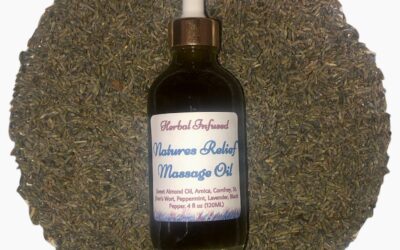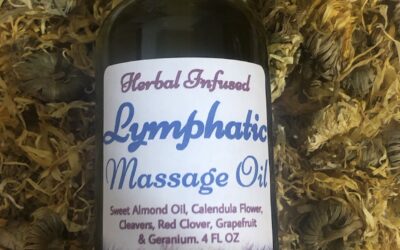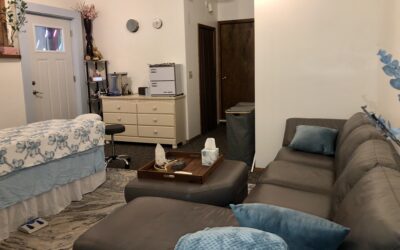Anxiety is a common and overwhelming condition that affects many individuals in their day-to-day lives. The constant worry, racing thoughts, and physical symptoms can make it difficult to function and find peace. While there are various treatment options available, one approach that has gained recognition for its potential in managing anxiety is massage therapy. In this article, we will explore the effectiveness of massage therapy for anxiety, delving into its physical and emotional benefits, and how it can be integrated into a comprehensive treatment plan.
Understanding Anxiety and its Impact
Anxiety is a natural response to stress, but when it becomes persistent and interferes with daily life, it can develop into an anxiety disorder. People with anxiety often experience symptoms such as excessive worry, restlessness, irritability, and difficulty concentrating. These symptoms can significantly impact their overall well-being and quality of life.
The Therapeutic Power of Massage
Massage therapy has long been recognized for its ability to promote relaxation, reduce stress, and improve overall well-being. While some may view massage as a luxury or pampering experience, it goes beyond that. Massage therapy can be a powerful tool in managing anxiety and its related symptoms.
Physical Benefits of Massage
Massage therapy offers a range of physical benefits that can aid in reducing anxiety. During a massage session, the body releases endorphins, neurotransmitters that promote feelings of happiness and relaxation. These endorphins counteract the effects of cortisol, a hormone associated with stress. By lowering cortisol levels, massage therapy helps regulate the body’s stress response and promotes a sense of calm.
Additionally, massage increases serotonin levels, another neurotransmitter responsible for regulating mood and emotions. Serotonin deficiency has been linked to anxiety and depression, making massage therapy a valuable treatment option for individuals struggling with these conditions.
Emotional Benefits of Massage
In addition to its physical benefits, massage therapy provides a range of emotional benefits that can positively impact individuals with anxiety. Many clients report feeling more relaxed, calmer, and mentally clearer after a massage session. The nurturing and safe environment created during a massage allows individuals to take a break from their daily stressors and focus on self-care.
Massage therapy can also decrease stress levels and alleviate feelings of anxiety. By promoting relaxation, it helps the body and mind enter a state of tranquility. This sense of relaxation can improve mood, increase confidence, and enhance overall well-being. Massage therapy offers individuals a space to reconnect with their mind-body connection, fostering a sense of relief and empowerment.
Incorporating Massage Therapy into Anxiety Treatment
To effectively integrate massage therapy into an anxiety treatment plan, it is essential to work with a qualified massage therapist who understands the unique needs of individuals with anxiety. A skilled massage therapist will listen to the client’s concerns and develop a personalized treatment plan to address their specific symptoms and goals.
Duration and Frequency of Massage Sessions
Massage sessions can range from 60 to 90 minutes, depending on the individual’s needs and preferences. For individuals with anxiety, it is often recommended to start with shorter sessions and gradually increase the duration as they become more comfortable. The frequency of sessions can vary, with some individuals benefitting from weekly sessions, while others may find monthly sessions sufficient to manage their symptoms.
Therapeutic Techniques for Anxiety
Various massage techniques can be beneficial in managing anxiety. Swedish massage, a gentle and relaxing technique, is commonly used to promote overall relaxation and stress reduction. Deep tissue massage focuses on releasing tension and tightness in the muscles, which can be particularly beneficial for individuals who experience physical symptoms of anxiety, such as muscle tension.
Another technique that can be helpful for anxiety is aromatherapy massage. Essential oils, such as lavender or chamomile, known for their calming properties, are incorporated into the massage oil or diffused in the treatment room. The combination of massage and aromatherapy can create a deeply soothing experience, further enhancing relaxation and reducing anxiety.
Building a Therapist-Client Relationship
The therapeutic relationship between the massage therapist and the client is crucial in providing effective anxiety treatment. A skilled and compassionate massage therapist will create a safe and nurturing environment, where clients feel comfortable expressing their needs and concerns. This relationship allows for open communication and the development of trust, essential elements in promoting healing and positive outcomes.
The Holistic Approach to Anxiety Treatment
While massage therapy can be a valuable component of anxiety treatment, it is important to approach anxiety from a holistic perspective. This means considering multiple aspects of an individual’s well-being and incorporating various strategies to address anxiety symptoms comprehensively.
Lifestyle Changes
In addition to massage therapy, individuals with anxiety can benefit from adopting healthy lifestyle habits. Regular exercise, a balanced diet, and sufficient sleep can all contribute to reducing anxiety symptoms. Engaging in activities that bring joy and practicing stress-management techniques, such as mindfulness or deep breathing exercises, can also be beneficial.
Cognitive Behavioral Therapy (CBT)
Cognitive Behavioral Therapy (CBT) is a widely recognized and effective approach in treating anxiety disorders. CBT focuses on identifying and challenging negative thought patterns and replacing them with more positive and realistic ones. When combined with massage therapy, CBT can provide individuals with the tools to manage their anxiety in both the physical and emotional realms.
Medication and Other Therapies
In some cases, individuals with anxiety may benefit from medication prescribed by a healthcare professional. It is important to consult with a qualified healthcare provider who can assess the need for medication and determine the most appropriate course of treatment. Additionally, other therapies such as acupuncture, yoga, or meditation can complement massage therapy and contribute to overall anxiety management.
Conclusion
Massage therapy offers a holistic and integrative approach to managing anxiety. By addressing both the physical and emotional aspects of anxiety, massage therapy can provide relief, promote relaxation, and enhance overall well-being. When combined with other therapeutic approaches and lifestyle changes, massage therapy becomes a valuable tool in the journey towards healing and finding peace amidst anxiety. Embrace the healing power of touch and allow massage therapy to support you on your path to a more anxiety-free life by booking an appointment with Holly Joy at Traverse Massage Intuitive Therapies.


















